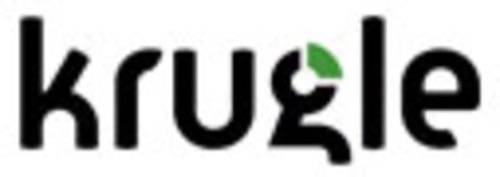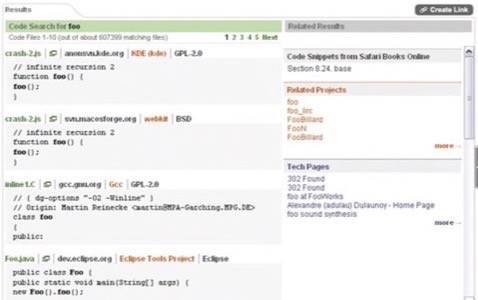Krugle, the eponymous code search engine launched by Ken Krugler in June 2006, is announcing today a partnership with Amazon to provide enterprise code search for Amazon’s Web Services developer network. Krugle has recently announced similar alliances with IBM developerWorks, Collab.net, SourceForge.net, and Yahoo! Developer Network.

Krugle’s search engine now searches 2.5 billion lines of code — up from 1 billion at launch just over a year ago — and reaches one third of all developers world wide, according to the company. The Krugle DevNetwork Edition being deployed for Amazon will allow developers to search for AWS code examples and other resources across Amazon’s sites and outside resource sites defined by the company from a single location.
“Search is driving significant changes in software development,” said Steve Larsen, CEO and co-founder, Krugle on the need for code search. “Developers are looking for ways to get their work done faster, allowing them to spend less time finding code and more time doing interesting and innovative development.” Krugle calls this method “search driven development.”

The site has built parsers for 42 different languages, allowing it, for example, to tell the difference between functions and classes — more than I can say personally! Krugle delivers related results culled from places like forums, white papers, API documentation, blog posts, and other related projects alongside its code search results.
Krugle thinks that their search driven development idea is essential for software developers in the future. More and more free, reusable code and development information is being put online, but there is so much of it that it becomes overwhelming for developers to wade through. When Krugle announced its search partnership with SourceForge.net in April, the site hosted 145,000 projects, for example. Today, just a few months later, that number has grown to around 160,000 projects. Before Krugle’s code search was available on the site, finding relevant code meant downloading projects and slogging through them by hand — now developers can search before they have to download anything.
Krugle appears to be beating its chief rivals in the code search vertical, such as Google. Though I have no hard numbers to back that assertion up, anecdotal evidence like the sheer number of LOCs indexed and the partnerships that Krugle is entering into with major enterprise code repositories like those run by Amazon, Yahoo! and IBM would suggest that their technology is performing well against or even outperforming rivals.
For more information on Krugle, check out this post at AltSearchEngines from last month.

















